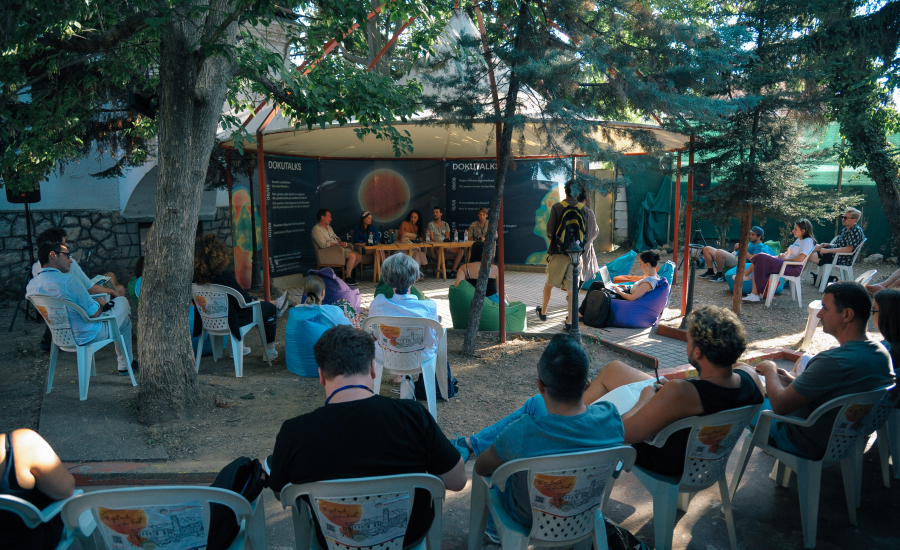12/08/2022
The mission of documentary films, in addition to showing an event, context or wound of a society, is definitely to leave an impact on the audience with the hope that it will gradually make a change. The impact of these films was the subject of this Thursday's discussion on "DokuTalks". A panel moderated by Dea Gjinovci and composed of Brigid O'Shea, Rich Felgate and Ilir Hasanaj, who was joined by Eroll Bilibani. The speakers, starting from their individual experience, brought to the attention of the public cases of the impact of these films and tried to find solutions for how these films will be in the future more effective for the societies in which we live.
"I think it's a difficult time for documentary filmmakers. In my case it's funny because I went to art school and learned art and I'm already in activism and I see this with criticism because these people come from where I came from and if other people have my views then something would change. This is a very interesting time to live because the impact you can leave is already greater. Filmmaking takes a whole village, it's not something you can do alone so it's important to work with the right people. I don't want to judge platforms like tik-tok theater and others like that. They are definitely okay, but if you want to leave an impact and take your film to the European Parliament, for example, you need a whole village of people, it's not something that a single person can do", said Heleen Gerritsen in her speech. .
While the filmmaker Ilir Hasanaj shared his experience during the shooting of the film for those present.
"It's interesting when you have a character and you have to know how your documentary later affects the character's life and especially when we talk about characters from the LGBT community, when this community is exposed and especially in a country where 90% of the people are Muslims. This community has a very important history which I have sometimes hesitated to use because it would endanger their lives. I had a character that was part of the film and later left, which was really okay because maybe I couldn't really understand from my perspective what place they were in and what they were at risk of. Every time you bring a certain topic, you have to consider which community you will present it to. However, during the film I had to cut and hide some scenes and certain details because not everyone could and should see where these characters lived or worked. Since we are dealing with DokuFest where the audience is more specific I brought it, but I will have to see where this film will go later and where I will present it."
This Thursday's discussion gave way to a multitude of questions from the attendees who did not hesitate to give advice on filmmaking.
By Ana Haxhimali
Photo Credits: Kushtrim Haxha


